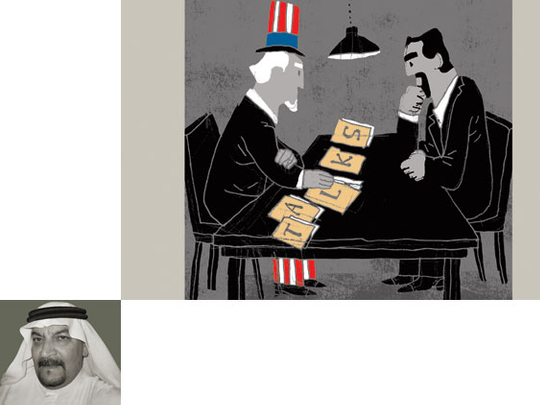
It was a welcome overture. Joe Biden, the US vice-president, said recently in Munich that the US was prepared for direct discussions with Iran if Tehran was serious about working towards the resolution of the differences between them. Since being re-elected, US President Barack Obama has shown intentions of resuming dialogue with Iran by sending out positive signals.
“There is still time, there is still space for diplomacy backed by pressure to succeed. The ball is in the government of Iran’s court. But we have also made clear that Iran’s leaders need not sentence their people to economic deprivation and international isolation,” offered Biden.
The offer for the talks was greeted positively in some of the Iranian government circles. The Iranian Foreign Minister, Ali Akbar Salehi, reacted positively to Biden’s offer and added on TV: “I would like to say that these are good signs ... We are a rational government and we look into resolving all outstanding international issues through negotiation. This is not a forbidden zone. This is not a red line when it comes to holding bilateral talks on particular subjects. Here I mean the nuclear issue. This is not a red line.” He added that his government would seriously consider the offer, but cautioned that they would have to refrain from “threatening rhetoric that everything is on the table”.
A few days later, the US widened sanctions on Iran with the intention of restricting its ability to use revenues from oil sales. According to a statement by the US Department of Treasury, the intent was: “In addition to effectively locking up Iranian oil revenue overseas, this provision sharply restricts Iran’s use of this revenue for bilateral trade and severely limits Iran’s ability to move funds across jurisdictions.”
Iran’s supreme leader, Ayatollah Ali Khamenei, reacted sharply a day later by saying that nogotiating with the US were not feasible while the US was continuing its strong-arm policy against the Islamic republic. If their intentions with the offer of dialogue were indeed to be meaningful, then why impose more binding economic sanctions against his country?
In direct reference to Biden’s offer, he replied: “The ball, in fact, is in your court. Does it make sense to offer negotiations while issuing threats and putting pressure? You are holding a gun against Iran, saying you want to talk. The Iranian nation will not be frightened by the threats. American policy in the Middle East has been destroyed and Americans now need to play a new card. That card is dragging Iran into negotiations.”
The Iranian President, Mahmoud Ahmadinejad, on the other hand, is said to be in favour of direct talks. The belligerence exhibited by Ahmadinejad in the first days of his presidency has somehow been tempered by geo-political realities.
In recent times, there have been overtures initiated by him through third parties in easing off tensions between the US and Iran, but it is said that each time his efforts have been stalled by the country’s supreme religious leader — Khamenei.
The economic sanctions are indeed hurting Iran and its people. For any significant purchase, it is not unusual to see Iranians closing their trade with a suitcase filled with Iranian riyals that have devalued dramatically in recent times. And more significantly, it draws a section of the Iranians closer to the Khamenei doctrine of rejection of any western overtures.
As one embittered Iranian said: “Iran is having guns pointed at it. Khamenei was perhaps too mild in his reaction. The sanctions that the West keeps imposing coupled with invasion of our airspace by US drones are not signs of peaceful overtures. They are more like acts of war! Iran has been a signatory to the Nuclear Non-Proliferation Treaty and has never been cited in violation of it. Israel refuses to sign the treaty and yet gets away with no sanctions. Where is the justice in all of this?”
Another added: “It is of no use talking to the Americans who, through their illegal sanctions on Iran, have caused much suffering in that country. I suggest that the Americans lift all sanctions and compensate the Iranians financially before any talks can take place.”
For the talks to go forth and produce fruitful results there must be efforts from both parties to bridge the gap. Iranians must not be swayed by religious figures who have assumed custody of the Iranian political arena.
The population of more than 70 million should not be held hostage to the doctrines of clerics attempting to steer the nation away from the 21st century. As a major player in the region, Iran must understand that its security signals the security for the region.
The West, on the other hand, could serve the cause of peace better by re-examining the policy and effects of its sanctions. Their offer for talks must be genuine and credible. They will not win many friends from within Iran if people go cold and hungry and have nothing more to lose. All means must be exhausted to bring about a peaceful resolution.
Tariq A. Al Maeena is a Saudi socio-political commentator. He lives in Jeddah, Saudi Arabia. You can follow him on Twitter at www.twitter.com/@talmaeena










